Among the pinnacles of the verismo repertoire, Andrea Chénier holds a special place — and, as always with Giordano, it demands a careful balance: between the pure beauty of the vocal line and the immersive force of total theatre, where the fourth wall collapses under the weight of history. Between sweeping lyrical outpourings and festive revolutionary choruses, the stage becomes a living fresco, the crowd surges forward, snatches of the Marseillaise echo through the hall, and opera transforms into spectacle. At the Deutsche Oper, this revival in John Dew’s production embraces this double identity with a certain classicism: no radical reinterpretation, but a neoclassical aesthetic that opts for broad, static tableaux, giving the singers full control of the action. A neutral frame, perhaps lacking boldness, but one that never gets in the way of the music.
And musically, the evening is a clear success. Axel Kober draws from the pit a broad, well-shaped reading, allowing the larger ensembles to breathe without weighing down the line. Giordano’s lyricism is well served, the choral masses are balanced, and the winds delicately trace the more intimate moments. Above all, there is a clear sense of dialogue between pit and stage, allowing the voices to bloom freely.
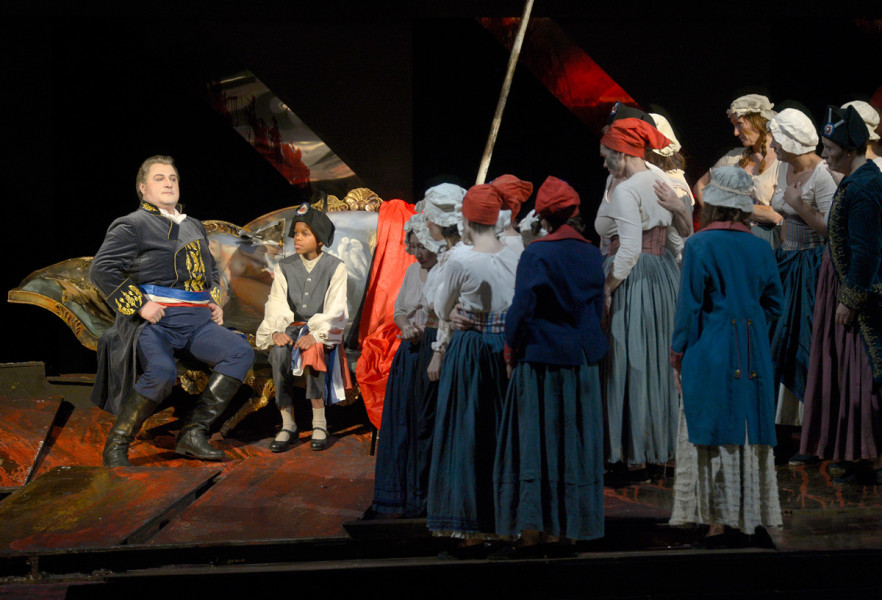
Gregory Kunde delivers a noble, fully inhabited Chénier, sung with great musicality. His voice — positively infused with the experience of a distinguished career — retains impressive projection and superb control. The phrasing is intelligent, the text delivery clear, the stylistic instincts spot-on. His “Come un bel dì di maggio” is a model of expressive restraint, moving in its simplicity. A masterclass in singing, and a genuinely touching moment of theatre.
As Maddalena, Sondra Radvanovsky brings immense vocal richness and dramatic intensity. Her voice, still so generous, dominates the great lyrical arcs with unflinching power. More forceful than delicate, she portrays an emotionally charged, uncompromising heroine — particularly in “La mamma morta,” which she carries from start to finish with compelling breath control and expressive clarity.
But it is Pavel Yankovsky who truly steals the show as Carlo Gérard. The timbre, the diction, the projection — everything is there. From his first appearance, he captivates with rare intensity, impressive vocal control, and a reading that is both musically refined and dramatically alive. He brings out all the complexity of the character — revolutionary rage, private longing, disillusionment — and commands the stage from start to finish. And like his voice, his acting is natural, spontaneous, and deeply moving. Gérard becomes the true heart of the drama here, and Yankovsky establishes himself as one of the great baritones of his generation. A revelation — or rather, for those already paying attention, a thrilling confirmation.
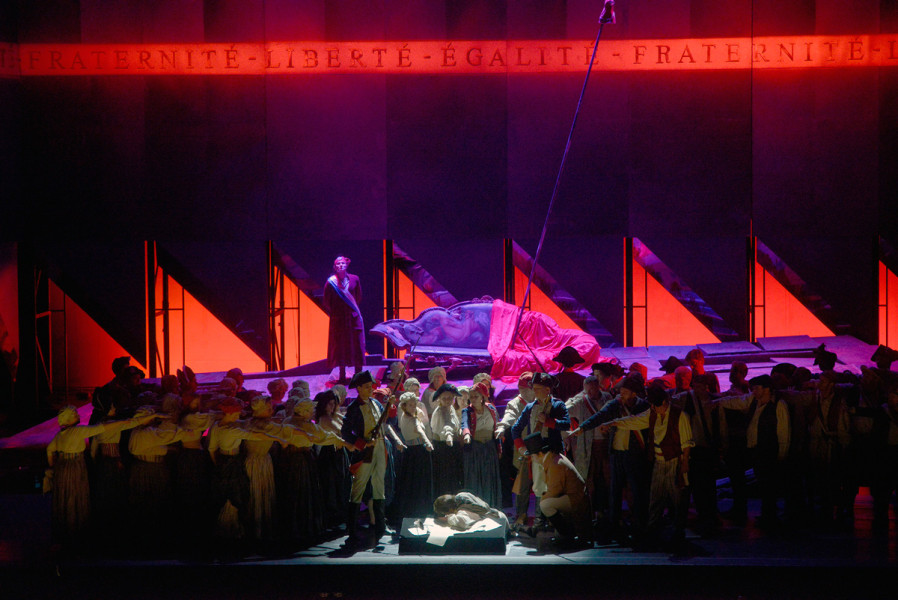
Around this central trio, the supporting cast is solid. Arianna Manganello delivers a lively, well-projected Bersi, Nicole Piccolomini gives the Countess de Coigny appropriate poise, and Padraic Rowan lends welcome authority to Roucher.
An evening that doesn’t seek to reinvent the work, but which defends its theatrical power and emotional core with honesty. And when a Gérard of this calibre anchors the performance, opera does what it’s meant to do: move, speak, and hold our attention to the very last note. One can’t help but wonder — and we ask this with real affection for the house — will the Deutsche Oper take the opportunity, in the next revival, to give Chénier a production with just a bit more life on stage?
CAST
Andrea Chenier
Gregory Kunde
Carlo Gérard
Pavel Yankovsky
Maddalena di Coigny
Sondra Radvanovsky
Bersi
Arianna Manganello
Contessa di Coigny
Nicole Piccolomini
Madelon
Jennifer Larmore
Roucher
Padraic Rowan
Pierre Fléville
Philipp Jekal
Der Abbé
Kangyoon Shine Lee
Matthieu
Michael Bachtadze
Incroyable
Burkhard Ulrich
Der Haushofmeister / Dumas
Stephen Marsh
Credits : Bettina Stöß

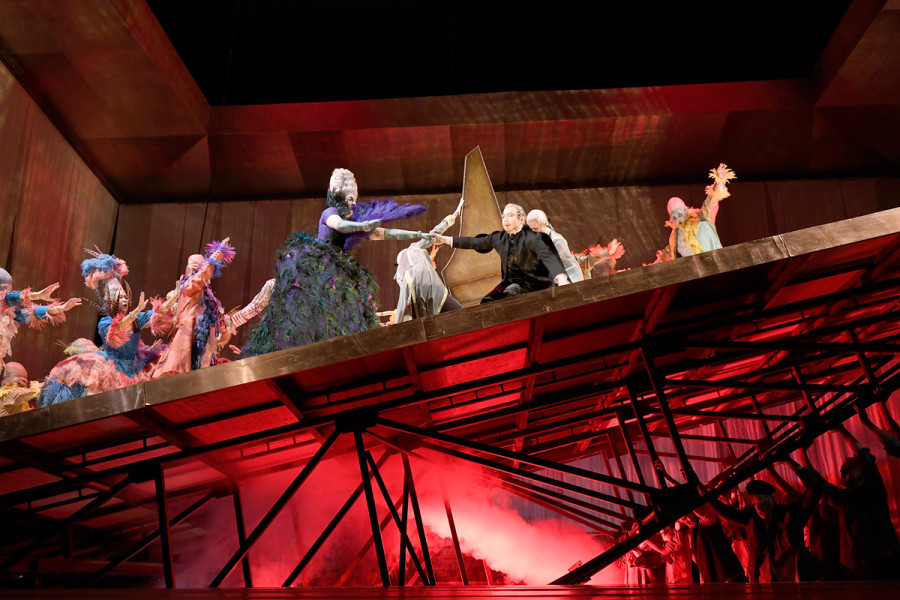
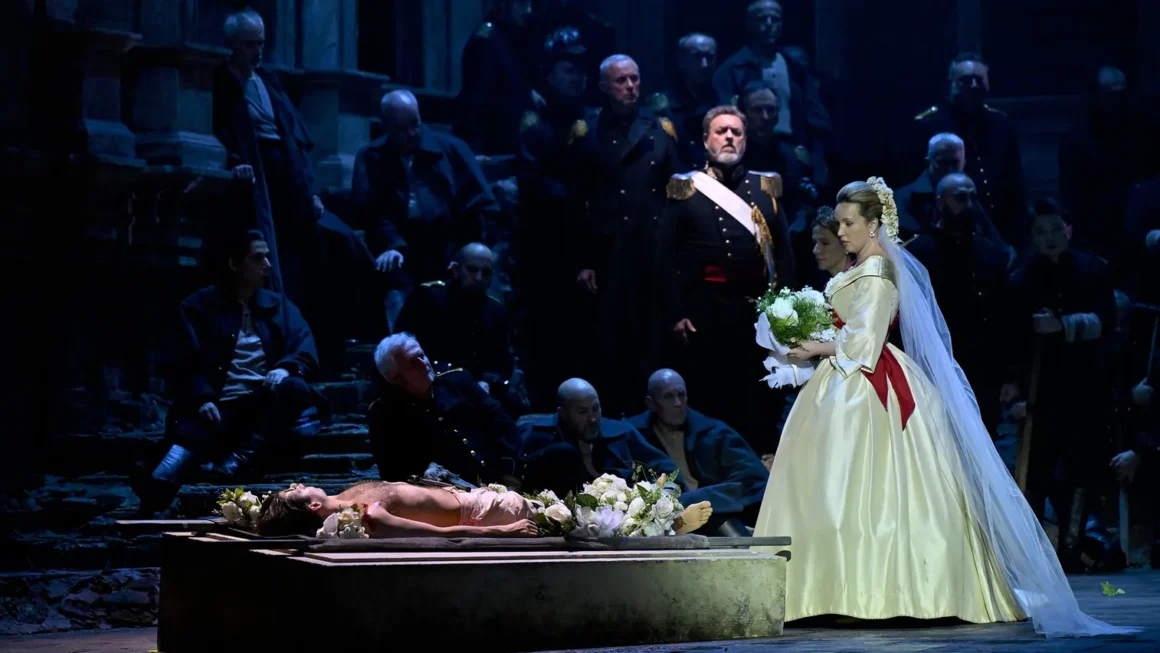
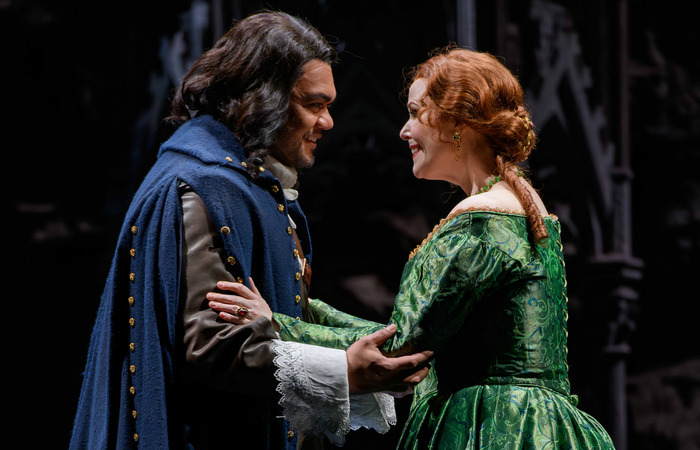
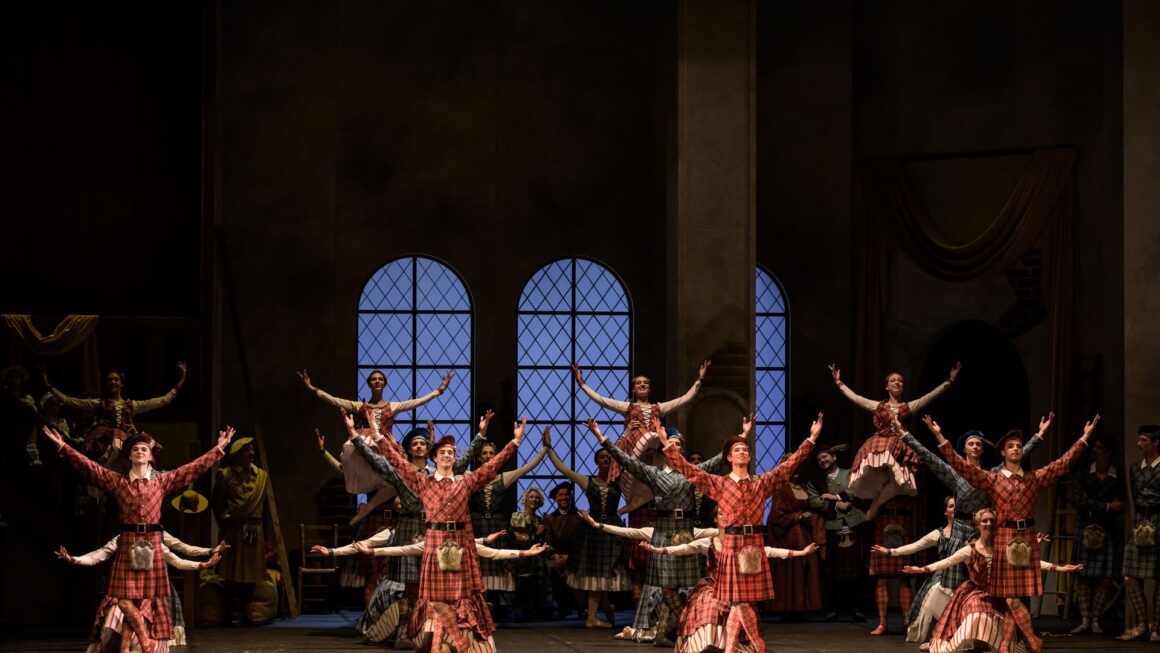
Kaixo, zure prezioa jakin nahi nuen.